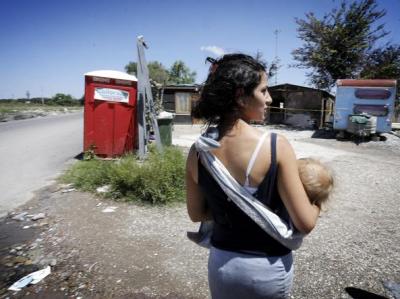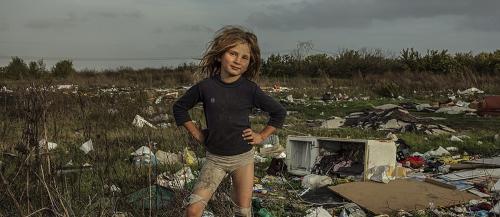Italy's discrimination of Roma people under accusation

ROME -- The Council of Europe Commissioner for human rights has raised concerns over Italy's treatment of Roma people in a letter written to Italian prime minister Matteo Renzi on Tuesday.
Commissioner Nils Muižnieks highlighted that "many Roma continue to face serious forms of discrimination and human rights violations by authorities at both national and local levels. In particular, forced evictions without due process and provision of adequate alternative housing continue unabated across Europe, in violation of member states' international human rights obligations," he announced at the EU Council when releasing letters sent to the governments of Albania, Bulgaria, France, Hungary, Italy, Serbia and Sweden.
The letter expressed concerns that Roma groups in Italy, including the Sinti communities in the north and the Camminanti in Sicily, were being denied adequate housing and therefore were often forced to live homeless or in camps.
"Evictions are often carried out without prior consultation with the families concerned and at very short notice, while adequate alternative accommodation is often not provided. This situation increases the vulnerability of Roma families, prevents their social inclusion and impedes any prospect of regular schooling for their children. Member states have to abide by their human rights obligations, by stopping such measures and investing more in finding durable housing solutions for Roma families," the commissioner wrote.
Italy is home to 180,000 Roma people, making up barely 0.25 percent of the country's population, and 60 percent of these are minors. Italy has come under criticism for some time for the lack of integration efforts for its Roma communities, who have often been forced to live in ghetto-like camps called "enclaves of segregation" by a UN mission report.
A national strategy was approved under former prime minister Mario Monti in 2012 which focused on greater inclusion of Roma groups and the eradication of camps, but only ten out of Italy's 20 regions have put it into action. It is estimated that 95 percent of Roma children do not finish school, whilst one in five never even begin it.
Muižnieks has asked for further information on measures being taken by Italy to remedy the situation.
ft



